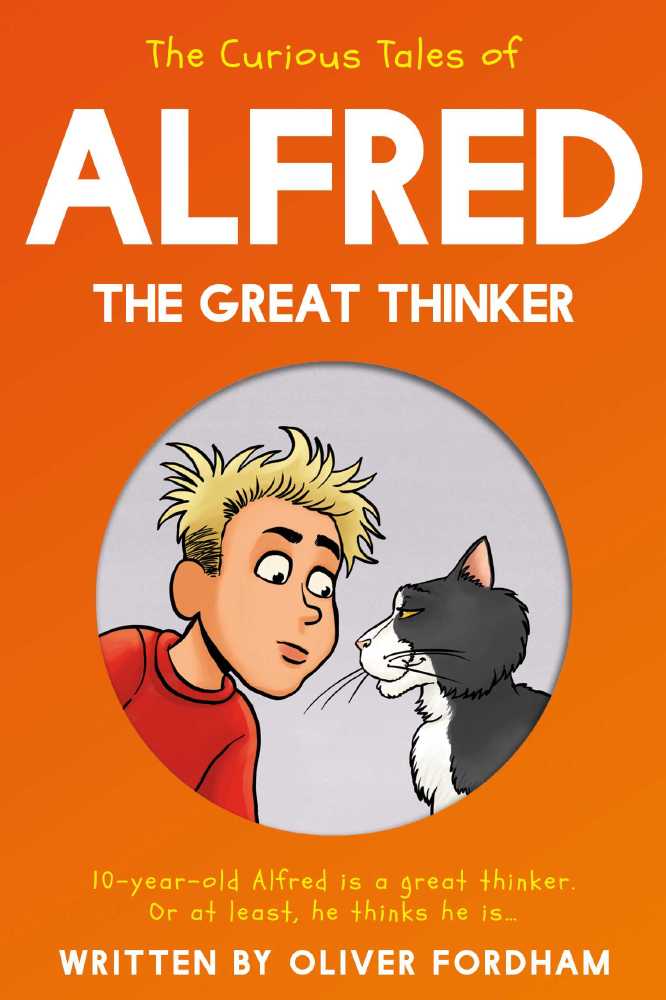I wrote The Curious Tales of Alfred the Great Thinker initially as a book to be read independently by 7-10 year olds. However, as it came to fruition, I realised that I also wanted parents and teachers to share it with their children, in order to promote thoughtful discussion. So I peppered it with Thinking Boxes to encourage engagement. Thinking skills are all the rage these days. But they shouldn’t be a ‘rage’. They should be a continuing and integral part of our children’s education and upbringing.

The Curious Tales of Alfred The Great Thinker
Let me outline some of the main themes from the story. These are ideas that I want both children and adults to learn from.
1 – SAVOUR THE LITTLE THINGS IN LIFE
Our western world is so full of gadgets, toys and technology. We seem to have all of the material things that we want. But what are the things which are really important to us? A smile, good manners, the air we breathe? They say that the best things in life are free. What we want and what we need can so often be very different things. So, what are the vital things that we really need as people, as human beings?
2 – FRIENDSHIP IS PRECIOUS
My two main characters, Alfred and Rose, learn about friendship – the humour, the trust and the joy. Friendship can germinate in unexpected places. But once it has taken root, it should be nurtured like a precious flower. The concept of give and take is so critical in a relationship. A friendship can be for life, but without investment it will wither and die.
3 – FUNCTIONAL FAMILIES ARE CRUCIAL
I hate the term ‘dysfunctional parents’ because it implies that those parents are somehow different to the majority of us. The reality is that we are all slightly dysfunctional – we are all continually learning. With so many aspects of parenting skills to consider, this maxim is probably my favourite: Achievement leads to confidence; and confidence leads to more achievement. It repeats ad infinitum – which I find very reassuring. So ask yourself, how many different ways can I help my child to achieve?
4 – GOOD BEHAVIOUR IS LEARNT
Children are not born with good or bad behaviour. They start out as a blank canvas, albeit with many inherent attributes. Good behaviour has to be taught and then learnt. Here are three points to focus on that will help create the best environment. Love your children (visibly), including their idiosyncrasies. Help them to exercise their minds and their bodies. Establish some positive expectations that match your aims for family life.
5 – ALL PROBLEMS CAN BE SOLVED THROUGH THINKING AND TALKING
It really is quite a simple yet uplifting idea that all problems have solutions. Our lives are complicated and, at times, may seem fraught with difficulties. But whatever crisis you may be going through, it can be solved through careful consideration and calm communication with the important people around you.
About Oliver Fordham
Oliver Fordham was a primary school teacher for twenty-five years with the final six spent as a headteacher. In 2013 he went into semi-retirement and trained as a driving instructor. Currently he is a part-time driver for his local bakery. This is his debut. He is based in Leicestershire.
RELATED: 10 Lessons we can learn from dogs by Dr Margit Gabriele Muller
It is well-established in the business world that extroverts have it easier in their work and become more successful than introverts. Researchers3 found that dog people were 15% more extroverted than cat people. The study also showed that dog people were outgoing, energetic, and had a positive attitude...


